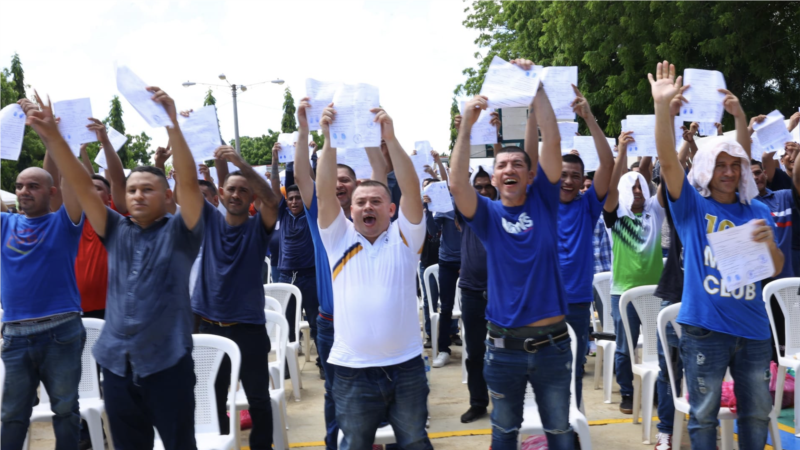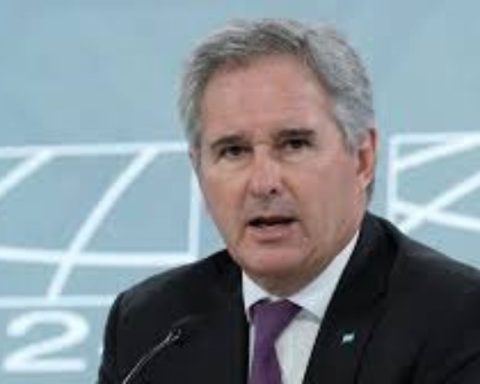
The Government of Daniel Ortega announced on Monday the release of two thousand common inmates in Nicaragua without their respective sentences, given the proximity of Valentine’s Day, announced the vice president and wife of Ortega Rosario Murillo in a television speech.
“We want to announce that this Friday, February 14 – this is a good new one – 2,000 people who have been detained in the different departments and units of the national prison system return to their family. They are legal benefits of coexistence for 2,000 people,” said Murillo, said Murillo, said Murillo, said Murillo, said sanctioned by the United States and a dozen countries that accuse her of violating human rights.
The release of these common inmates is the greatest of recent years. Previously the government has released common inmates although in lower quantities.
In 2024, the Sandinista government released 9,200 common prisoners. The liberations usually occurred on festive dates, such as Mother’s Day, or Day of the Dead.
The release of common inmates is a practice questioned to the Sandinista administration of Nicaragua by its critics, because there have been cases of recidivism of crimes of several people who were released.
The sociologist and professor at the University of Costa Rica Carlos Sandoval explains that the fact that Daniel Ortega imprisoned his critics and releases common inmates, “is a kind of authoritarian populism that finds different versions.”
On the one hand, according to critics, massive and populist support of released people is sought, while on the other, a ferro control against dissident voices.
More than 40 political prisoners
Meanwhile, the figure of political prisoners continues to increase in the Central American country. The mechanism for the recognition of people political prey in Nicaragua- an Oenegé that counts political arrests- has documented that at least 47 people continue deprived of liberty for political reasons; Of these 40 are men and 7 women, according to the latest report published at the end of January 2024.
According to the organization, the profile of people political prey in Nicaragua is increasingly diverse.
“In recent years, the repression of the regime has climbed to such a level that no one is safe, not even those who in the past were supporters of the government party, state workers or people who openly defended the regime,” said the agency.
Connect with the voice of America! Subscribe to our channels ofYouTube, WhatsApp and al Newsletter. Activate notifications and follow us in Facebook, X and Instagram.
















